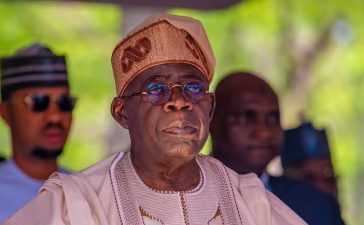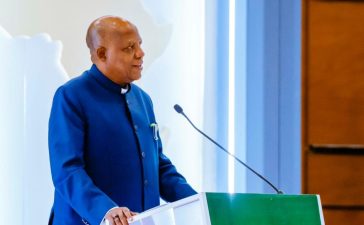Over 16,000 Nigerian doctors have left the country in the last five to seven years, as many healthcare professionals seek better opportunities abroad, according to Prof. Muhammad Pate, the Coordinating Minister of Health and Social Welfare. Speaking at the seventh annual capacity building workshop of the Association of Medical Councils of Africa in Abuja, Pate highlighted the challenges posed by the migration of skilled health workers and its impact on Nigeria’s healthcare system.
The doctor-to-population ratio in Nigeria has now dropped to 3.9 per 10,000 people, well below the global recommended minimum. The mass migration of doctors, nurses, and midwives has created a significant gap in the country’s health workforce, leaving many rural communities underserved. Pate explained that the cost of training one doctor exceeds $21,000, further compounding the fiscal loss as these trained professionals leave Nigeria for better working conditions, economic opportunities, and advanced training abroad.
Pate acknowledged that while the migration of health professionals from developing countries is not new, it has accelerated in recent years, deeply affecting the nation’s healthcare system. However, he presented an opportunity for Nigeria to rethink its policies and manage its healthcare workforce more effectively. Under the leadership of President Bola Ahmed Tinubu, Nigeria is focusing on a new direction to address these challenges.
The government’s National Policy on Health Workforce Migration is a key part of this strategy. The policy aims to retain and motivate health workers within the country while establishing ethical norms for recruitment, expanding training capacity, and strengthening healthcare governance. Pate emphasized that this policy is not restrictive but aims to balance the rights of health professionals to seek global opportunities with the nation’s need to maintain a functional health system.
Pate also called on African countries to lead in establishing a global compact on health workforce mobility, which includes shared planning tools, training standards, and data systems to better manage health professionals’ migration across the continent.
The workshop, themed “Integrated healthcare regulation and leadership in building resilient health systems,” brought together key stakeholders, including Prof. Joel Okullo, President of AMCOA, and Dr. Fatima Kyari, Registrar of the Medical and Dental Council of Nigeria. The discussions centered around strategies to manage healthcare workforce mobility, improve credentialing, and enhance data management systems.
Prof. Afolabi Lesi, Chairman of the Local Organizing Committee for the workshop, stressed the importance of maintaining global standards in healthcare regulation while addressing local challenges. He noted the fragmentation within the healthcare system that often hinders effective implementation and patient care.
The event underscored the need for collective efforts across African nations to overcome healthcare challenges and build stronger, more resilient health systems on the continent.







